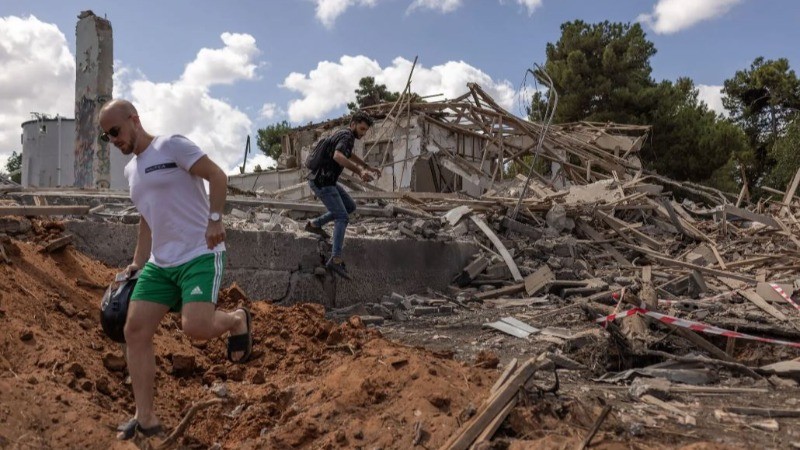
Israel launched targeted airstrikes on Iran, describing the actions as "precise and focused" in response to a series of missile attacks from Tehran earlier this month. This exchange is the latest development in an ongoing series of confrontations between the two nations, which have fueled fears of a larger regional conflict.
Details of the Attack
Around 2:00 a.m. local time, Iranian media reported explosions near the capital, Tehran, with videos on social media showing projectiles in the sky and sounds of loud booms heard across the city. Shortly afterward, the Israel Defense Forces (IDF) confirmed its strikes, which targeted specific military sites within Iran.
Israeli Prime Minister Benjamin Netanyahu and Defense Minister Yoav Gallant observed the mission from the IDF’s command center in Tel Aviv, with the IDF announcing the conclusion of the strikes just after 6:00 a.m. The White House described Israel’s actions as "self-defense," with officials indicating that the United States had encouraged a "proportionate" response.
Scale and Damage Assessment
The full extent of the damage remains uncertain. Israeli sources reported strikes on missile manufacturing facilities, surface-to-air missile sites, and other strategic locations. Iranian military officials confirmed two soldiers were killed, while air defense systems intercepted several projectiles. Iran reported strikes across multiple provinces, including Tehran, Khuzestan, and Ilam, with limited damage in some areas.
A senior U.S. official noted that the strikes avoided critical targets such as oil facilities and nuclear sites, following guidance from President Joe Biden. Syrian media also reported strikes on military locations, though Israel has not confirmed any involvement in Syria.
Reasons Behind the Attack
Iran’s support for groups hostile to Israel, including Hamas and Hezbollah, is seen as a driving factor in these tensions. Earlier this year, Iran launched missiles and drones directly at Israel in response to an Israeli strike in Syria that reportedly killed key Iranian commanders. Subsequent Israeli strikes in Lebanon and Tehran targeted high-profile figures associated with these groups.
In early October, Iran launched 200 missiles at Israel, claiming it was in retaliation for these targeted attacks.
What Lies Ahead?
Signs suggest that Israel may be aiming to prevent further escalation. Sources indicate that Israel sent a message to Iran ahead of the strikes, revealing certain details and advising Tehran to avoid responding aggressively. The IDF stated that its focus remains on objectives in Gaza and Lebanon, adding that Iran continues to press for broader conflict in the region. A U.S. official noted this latest exchange could mark the end of the current cycle of direct confrontations.
Middle East Latest: Israeli Airstrikes Impact Lebanon, Gaza, and Iran Amid Rising Tensions
Israel Launches Targeted Airstrikes on Iranian Military Sites in Response to Missile Attacks